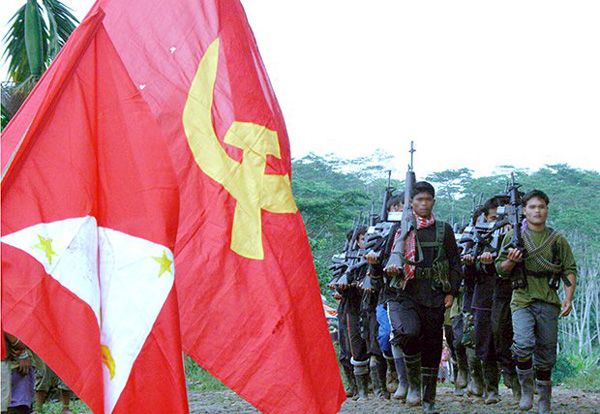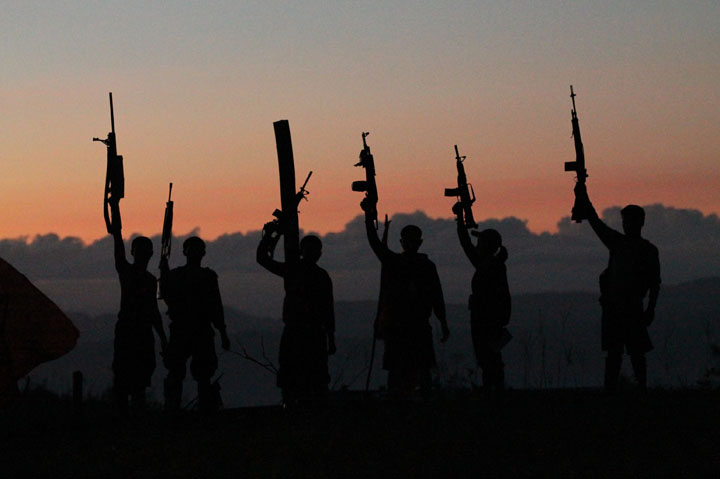
The ceasefire with communist rebels is officially over, as President Duterte warns there will be “no peace for a generation”.
The president has been angered by the killing of six soldiers and the kidnapping of three more since the New People’s Army (NPA) broke its ceasefire on Wednesday.
He said that despite making multiple concessions to the communists, the NPA’s demands were “just too huge”.
The conflict between the government and the NPA — the armed wing of the Communist Party of the Philippines (CPP) — has raged since 1968 and killed more than 40,000 people. It is Asia’s longest-running communist insurgency.
“I have lost many soldiers in just 48 hours, I think to continue with the ceasefire does not, or will not, produce anything,” Duterte said today (Friday, February 3).
“So I am asking the soldiers — go back to your camps, clean your rifles and be ready to fight.”
The ceasefires called by both sides have always been fragile. Because they were declared by each side unilaterally, there were no fixed rules to abide by, and each side has accused the other of violations.
When he took office last year, the president made the peace process one of his top priorities, as a prerequisite for his goal of introducing a federal system in the Philippines.
He pledged that leftists would be given cabinet posts and promised — should peace talks succeed — a portfolio for Jose Maria Sison, his former university professor and the CPP leader who lives in exile in the Netherlands.
Sison is listed by the US as a “person supporting terrorism”. The Philippine government last week asked that this label be dropped in order to move the peace process forward.
“I’m really very sorry. I tried my best but like in the song, my best was not good enough,’ the president said. “There will be no peace in this land vis-a-vis the Communist Party. Let’s resume the war.”
The NPA on Wednesday accused the military of occupying 500 baranguays that are supposedly within their sphere of control and accused government troops of unspecified “hostile actions”.
The military’s predictable response was that the NPA had done the same things on many occasions.
Armed forces chief General Eduardo Ano described the NPA’s conduct this week as “disdainful and disturbing”.
Duterte said the rebels’ demand for the release of hundreds of political prisoners was excessive, making a compromise impossible. In his view, he had already shown good faith by freeing a number top communist leaders.
“I am sad to report to you that there will be no peace with the communists for the next generation”, he said.
Government peace negotiator Silvestre Bello said he was confident that both sides wanted to keep the peace process alive. “Trust is still there,” he said “The unilateral ceasefire was not working well because there were no definitions of terms, no parameters.”
A brief history of the NPA communist insurgency:

Jose Maria Sison, a political science professor and Duterte’s former university tutor, founded the Communist Party of the Philippines (CPP) in December 1968. Three months later, its military arm, the New Peoples Army (NPA), was founded.
Ferdinand Marcos cited the threat from the communists as a primary reasons for imposing martial law in 1972.
After Marcos was ousted in 1986, President Corazon Aquino started negotiations with the rebels, agreeing a ceasefire.
Peace talks collapsed and the ceasefire ended in 1987 after police in Manila opened fire on farmers calling for land reform. (Read more about the Mendiola Massacre here.) Sison fled to the Netherlands and sought asylum.
At the height of the insurgency, the NPA had 25,000 men under arms operating throughout the country, but mostly on the eastern seaboard.
Ideological conflicts in the movement surfaced in the early 1990s, leading to the fragmentation of the CPP into seven competing factions.
That breakup, , along with an improving economy and battlefield reversals, saw the NPA’s fighting force reduced from 25,000 to just 3,000 today.
Efforts to revive peace talks by President Benigno Aquino rule stalled when the rebels demanded the release of political prisoners.
Duterte has freed some senior rebel leaders and agreed to political, economic and social reforms. Both sides announced unilateral ceasefires in August.
The truce has now collapsed, with both sides accusing the other of violations.
Also read: Communists gathered in Davao express support for Duterte
